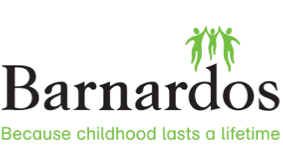Tusla, Care Orders & the Social Care System
What is a Social Worker?
This is someone who works in the social work profession, providing support to individuals, families, and groups.
Social Workers look to create social change and enact social justice, and they do this by helping others. Social Workers help people by listening to them, understanding their needs, and empowering them to access the support and guidance that they need.
In the context of this project, the Social Workers that we encounter are Child Protection Social Workers. They are employed by the Child & Family Agency (Tusla) and are required to be registered to the Irish multi-profession health regulator (CORU).
What do Child Protection Social Workers do?
The role of Child Protection Social Workers is to protect children (people under 18 years) from significant harm.
Child protection social workers work with parents, families, and other people in a child’s life to help make sure children are cared for and protected from harm. This involves assessing risk, identifying harm, reducing harm, and protecting children.
Do all Child Protection Social Workers do the same job?
A child protection and welfare social worker focuses on children – are they well cared for and protected from harm?
They carry out different tasks, such as:
- Assessments, to identify if the child is being harmed or is at risk of harm;
- Interventions, which involve making plans to help protect the child from harm;
- And following up, which involves checking to see if the plans agreed are put into action and if people are doing what they said they would.
When would a Child Protection Social Worker get involved with a family?
A Child Protection Social Worker may get involved with a family’s situation when a Child Protection and Welfare Report is made about the child. This is when a person has concerns for a child’s welfare and reports it to the Child and Family Agency (Tusla).
Under the Children First Act 2015, Tusla is required by law to investigate Child Protection and Welfare Reports.
What happens when a Child Protection and Welfare Report is made?
All Child Protection & Welfare Reports have to be reviewed by Tusla to see if they meet the threshold of significant harm. Where a report meets the threshold, a social worker from Tusla or a social care worker working on behalf of Tusla will carry out an initial assessment with the child’s family.
There are some circumstances where there is no initial assessment, for example:
- Where a report does not meet the threshold, or
- Where there is such significant risk to the child that Tusla choose to take immediate action.
The initial assessment will involve talking to the people connected to the child, such as parents, teachers, and G.P.
The social worker will identify is if a child is at risk of harm, if a child is having difficulties, or if a family requires support.
What is meant by harm?
Harm or hurt can mean different things. It can be
- Physical, like an injury,
- Emotional, like being threatened or frightened,
- Sexual, like someone using their power to involve a child in sexual activity,
- Neglect, where a child does not have the basic things they need, like not having enough food, not being washed, or being left alone for long periods of time, or
- Wilful Neglect, where the child is intentionally not cared for or given the things they need, such as food or medical care. Wilful means that the parent had the ability and resources (such as money) to care for the child but they do/did not care for their child.
Risk means unsafe situations, or people behaving in ways that are likely to be dangerous.
Get in touch
If you are a parent who’d like some support through childcare proceedings, freephone or email [email protected], the Parental Advocacy Service, delivered by Barnardos.
Our independent & confidential service is open to all parents of children in care.
1800 333 355.
